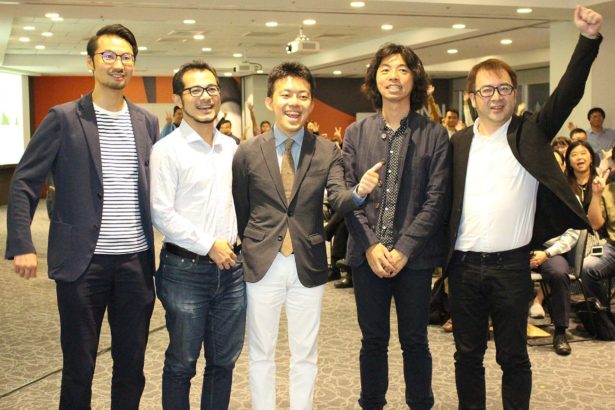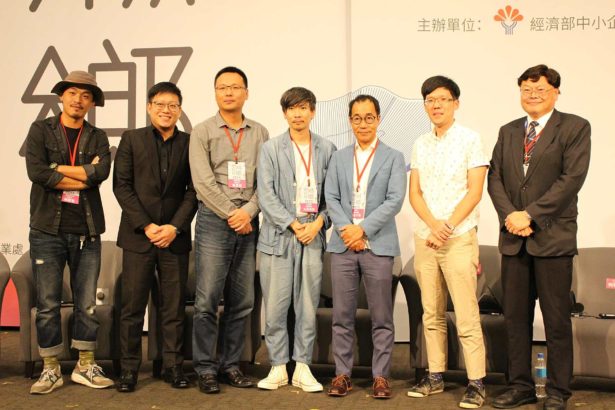There is always light: the fourth year of non-gay campus lunch.
Share +1 Tweet Email
It has been 1460 days since a citizen initiative started with a Facebook fan page. Those involved probably never expected that such action would continue to this day, and it seems that it will continue to move forward.
In the four years since 166 candidates for local public office signed a response, 19 county and city leaders publicly pledged, and the Legislative Yuan amended the School Health Law to ban the use of genetically modified foods in school lunches, the change in Taiwan's genetically modified food policy due to consumer actions has repeatedly attracted special attention from government agencies and civil society organizations in neighboring Japan and South Korea.
Of course, criticism never stops. Blindness, unscience, fear peddling, escorting specific industries, just trying to stir up news through elections, and the big hat of technical trade barriers put on by the United States.
Is this really the case? More and more evidence shows that genetic modification issues not only involve human health risks, but also include pesticide abuse, genetic pollution, corporate monopoly, food autonomy, deep biopiracy, environmental ethics and other aspects of fairness and justice.
Each of these deeply affects our daily lives.
In March this year, we went to Nagoya to participate in the 13th GMO FREE ZONE Conference, after which we shared the current situation of genetically modified foods in Taiwan with activists from all over Japan.
In April, a Chinese booklet entitled Genetically Modified Foods was translated and published at my own expense. This is the first publication in Taiwan aimed at consumers to explain gene editing technology and its risks.
In May, non-radical reform advocacy groups from Japan and South Korea were invited to Taiwan to jointly sign the "2018 Declaration on the Connection of Taiwan and Japan's Anti-radical Reform Movement", hoping to maintain close cooperation through international alliances and jointly build an urban-rural symbiotic society where everyone can eat safe food.
In June, he accompanied Japanese researchers in investigating the spontaneous scattering of soybeans and corn from the foundations of Tainan and Kaohsiung, and hosted a public lecture to ask him to share the history of citizen science investigations that have lasted for more than ten years in Japan.
In October, we will have our first opportunity to initiate initial exchanges with our Chinese partners.
Looking back, sometimes full of trance, how did we make that decision? How did he get here?
What kind of scenery will you see in the next four years? He looked forward to it.
School lunches are gay.
September 30, 2018
Share +1 Tweet Email
- Prev

"in order to get subsidies, spend your energy on things that don't make money at all," Kinoshita watched Chuangsheng from the shopping streets of Japan.
"in order to get subsidies, spend your energy on things that don't make money at all," Kinoshita watched Chuangsheng from the shopping streets of Japan.
- Next

The industrial potential comes from the local unique charm! It is very important to "resonate" with local creative professional exchanges in Taiwan and Japan.
The industrial potential comes from the local unique charm! It is very important to "resonate" with local creative professional exchanges in Taiwan and Japan.
Related
- A course of planting techniques and methods on how to grow carrots
- How to plant the latest tulips?
- Is it better to pick tea in the morning or in the afternoon? When is the best time for tea to be picked? what is the third or fifth tea?
- Launch Yuanxiao Happy combination Haocha + Tea Yuan healthy Taste
- Penghu Tourism "Fireworks 20 Parade with You"
- 2022 West Lake Happiness holds "Digital Revitalization Voucher" and draws iphone13 and laptop.
- Banqiao Fuzhou social houses are designed to change start-up combined with police elimination to create a safe and livable environment
- The convenient measure of "mechanical weeding" in Xinbei has been abused and the Agriculture Bureau has imposed heavy penalties on the illegal land consolidation.
- Changgeng University Joins Hands with Four Memory Factories to Rescue Memory Talent Shortage
- The list of Taiwan's top 100 MVP managers is listed by the Director-General of the Farmers' Association of Sanxia District.

